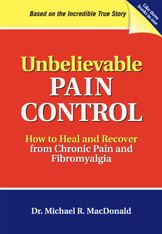
I AM STILL CONFUSED
This story is lurking around in my brain and continues to haunt me. I try to make sense of it, but it still confuses me.
A patient with severe back pain and secondary depression came into my office for a regular treatment session. She was in her mid-forties and married with two children. Since her work accident three years ago, she has not been able to return to her good nursing job.
She was very upset following a recent visit to her specialist. The specialist told her that it didn’t matter how much pain she was in, she still needed to return to work. His plan was to send a report to her workers’ compensation board explaining his recommendation.
I knew this specialist’s reputation and was not that surprised by how he had treated her. I had seen this play out many times before.
And I had seen the toll it had taken on many people’s lives. My patient knew that she would be cut off of her income replacement benefits. She knew that this would cause much loss and suffering for her and her family. She also knew that, no matter how much she loved her job, she could not return to any kind of work.
Next, was the shocking and confusing part.
She told me that she felt like taking a gun into this doctor’s office and shooting herself. She didn’t feel like shooting the doctor – she wanted to shoot herself.
I asked her several questions to make sure I understood what she was saying. She repeated, through her tears, that she wanted to shoot herself, not the doctor.
I would never recommend shooting a doctor, even this reprehensible specialist. But in my mind, there is no doubt that he was in the wrong. She was innocent and deserved no harm.
In her mind, she felt more deserving of harm than him. She felt powerless and unworthy of living.
And it is this feeling of utter powerlessness than still haunts me.
I know that severe pain, limitations, losses and disability can make people feel powerless. Depression also comes with this package and intensifies the worthlessness that people in pain can feel.
This patient felt so worthless that she was, at least at first, unable to see that the doctor was in the wrong, not her. The doctor had his own financial interests and prejudices at heart and was purposely denying her legitimate inability to work.
It took a lot of work to help her see and believe that he was the criminal, not her. It also took many letters and reports, to her other doctors and workers’ compensation, to get her income replacement benefits reinstated.
This was the only way forward for her. The only way to get her moving toward a more active life. For many people, when their benefits are cut off and their losses mount, recovery and rehabilitation are over. I didn’t want this for her.
I am still struggling to understand the depths of her feelings of worthlessness and powerlessness. I know that pain, limitations and losses can be a big part of this. In her case, being knocked down by a powerful doctor was also a significant part. It made her feel small and worthless. She also knew that the powerful workers’ compensation case manager would add to the harm the doctor caused. Even more hurtful was the knowledge that her family would suffer and that there wasn’t anything she could do to stop it all.
Doctors, lawyers, insurance companies and workers’ compensation wield incredible power over people and their lives. Sometimes the only counterbalance comes when professionals write reports and letters about what they know to be true about their patients. All health care professionals can do this, not just the doctors. In some caes, I encourage patients and their family members to write letters as well.
You all have more power than you realize.
These reports can be especially helpful when you describe, in everyday language, what the injured person feels, can and cannot do, the parts of their lives that have been affected and how hard they have been working to get better. Your knowledge, efforts and power can help build up your patients in more ways than you can know.
And all of this helps us be a part of a better less hurtful world.
Let’s do more wonderful and powerful things together.
* * *
Thank you for reading. Thank you to Hailey Kean (image above) and Rachel Walker (image below, both from Unsplash) for your creative work. And, please feel free to steal, share and join our growing list of subscribers.
AND, please spread the word using the hashtag #RealPhysicalPain with all your social media.
Mike
STORY OF PT feeling like COMING INTO OFFICE with a gun and shooting herself
why – learned more from reading Heart Berries memoir – add photo of book
– – authour struggles with pervasive feeling of being not enough
This can be a powerful feeling – worse when you have limitations imposed on you by pain and injury
you feel like you cannot do what you need to so, work, support yourself and family, help your family etc
photo by hailley Kean – unsplash




